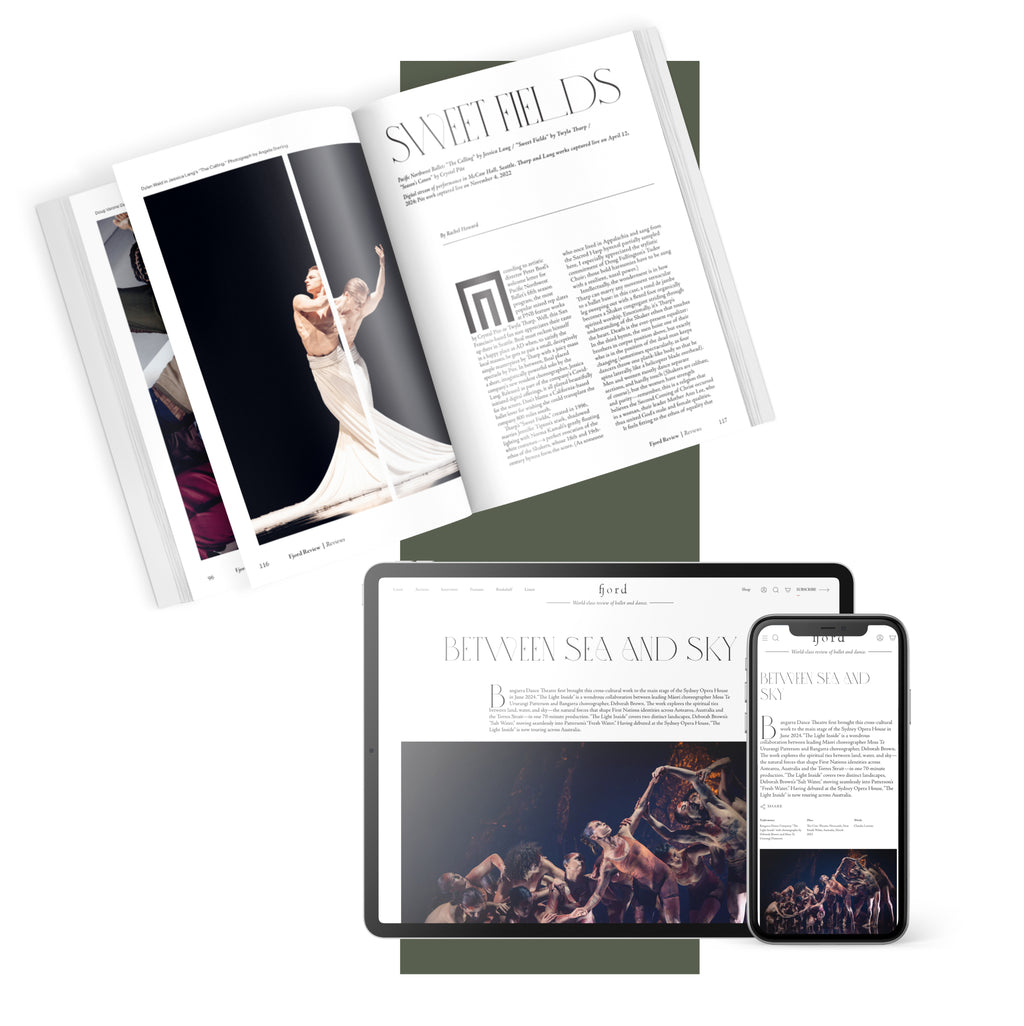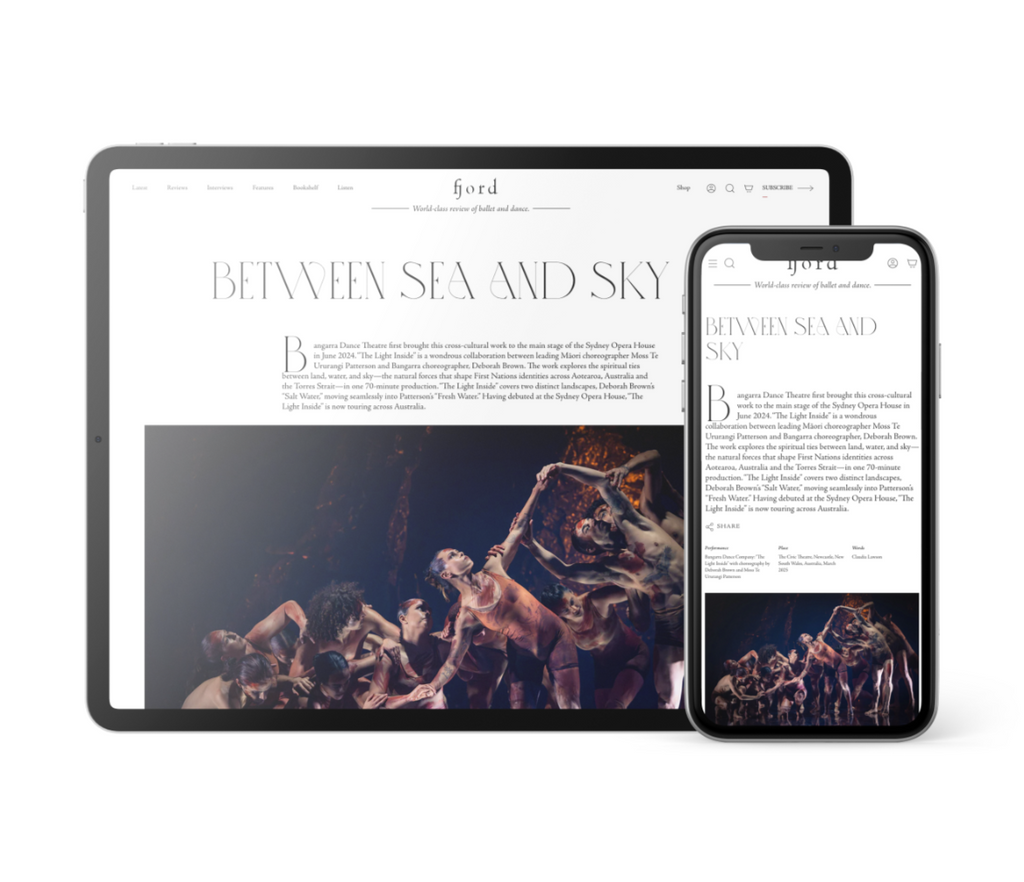The Act Three variations that follow the waltz are prime Balanchine in speed and style. Unfortunately, though, the usually elegant soloist Clara Ruf Maldonado had a strange, jerky take on Dawn, throwing her head back in an unnatural flourish after the grand rond de jambe; at first I thought this must be an attempt at something Balanchine wanted in the step, but looking at videos from the 1970s I see nothing like it from earlier interpreters. Elizabeth Murphy was soft perfection as Prayer. Corps member Melissa Guilliams showed incredible confidence in the Spinner variation—big jumps, crisp but never forced attack. War and Discord brought fabulous entrechat from Dammiel Cruz-Garrido and cheeky strength from Cecilia Iliesiu, almost making this hammy inclusion to interpolated music from “Sylvia” worth it.
The final pas de deux for just-married Swanilda and Franz is titled Peace, and it does bring gentle harmony in the slow retiré promenades and a lovely repeated lift where Swanilda rides Franz’s shoulder as though gliding on air. Importantly, though, the couple’s big finale doesn’t negate the heroine’s decisive, self-possessed qualities. (That would feel borderline insulting, given that Franz has never really redeemed himself, and still doesn’t seem to deserve her.) If Princess Aurora gets to gallop alongside her prince at the finish of “Sleeping Beauty,” Swanilda gets to gallop on her own through these nuptial festivities, thank you very much.
Biasucci made of it all a most wonderfully musical romp, her rubato as free and teasing as her act one brisés were fluttering. She is truly a standard-bearer in this role, something I am late in discovering: Evidently Biasucci was first thrown into dancing Swanilda as a corps member when a principal got injured back in 2010, then had a go at it again in 2016. She embodies Swanilda without break from dancing to mime, just as McBride reportedly did, and somehow makes it to the end of act three without seeming to have broken a sweat, too. James Kirby Rogers, soon departing PNB to join Germany’s Semperoper Ballet, did well with the acting, even if his runs between bravura jumps look a little gangly.
If San Francisco Ballet has abandoned Balanchine for the time being, companies other than PNB are making sure this “Coppélia” lives in more than history books: Atlanta Ballet, now led by former SFB principal Gennadi Nedvigin, will dance this same PNB production next March.











comments